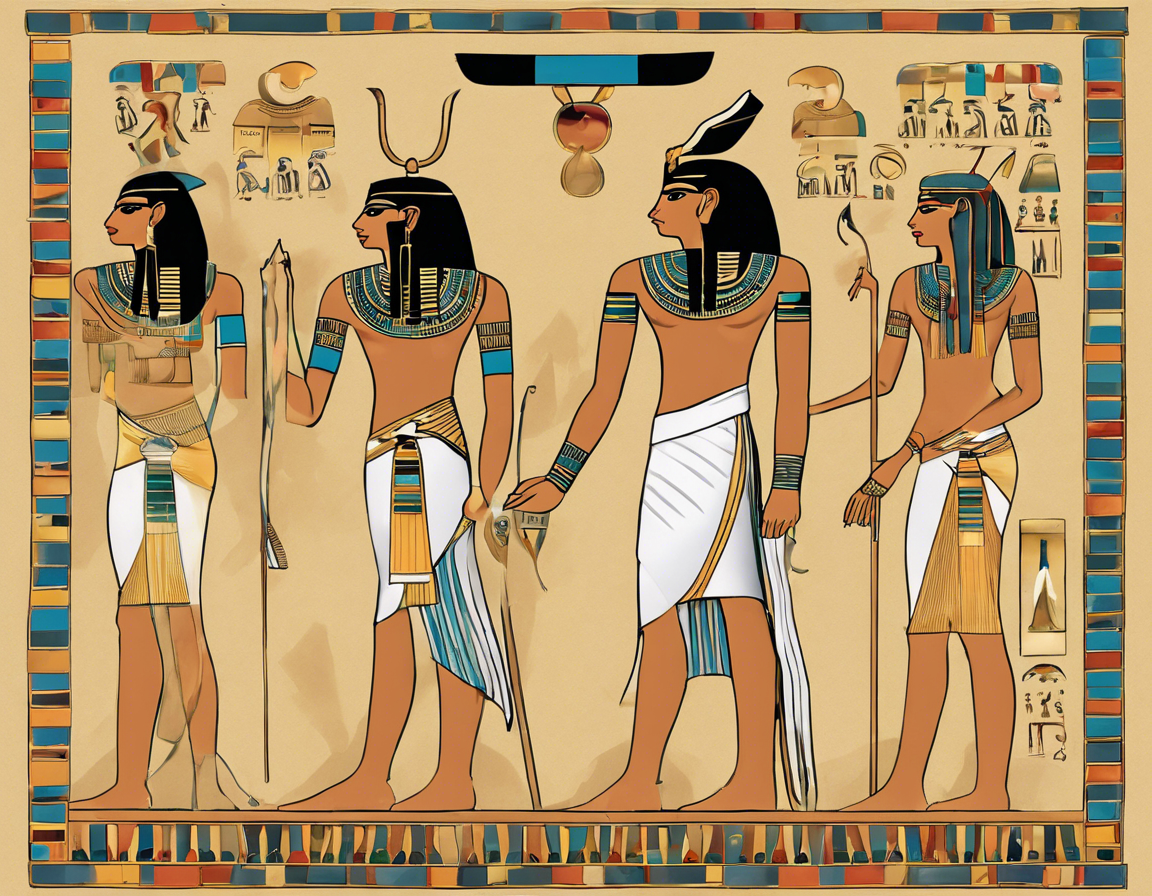
Exploring Egyptian Surnames: A Deep Dive into Family Heritage
Introduction
In the world of surnames, Egyptian last names stand out for their rich history and cultural significance. In Egypt, surnames carry with them a sense of pride, identity, and connection to ancient traditions. From the influence of occupation and geography to the impact of foreign invasions, Egyptian surnames have evolved over centuries, reflecting the country’s diverse heritage. Join us on a fascinating journey as we delve deep into the intriguing world of Egyptian surnames.
The Evolution of Egyptian Surnames
Egyptian surnames have a long and complex history, shaped by various factors over time. One of the earliest forms of surnames in Egypt can be traced back to the pharaonic era, where individuals were often known by their occupation or achievements. For example, names like “Khufu” (meaning “protected by Khnum”) or “Ramses” (derived from Ra, the sun god) reflected a person’s relationship to the divine or their role in society.
During the Greco-Roman period, Egypt saw an influx of Greek and Roman influences, leading to the adoption of new naming conventions. Many Egyptians began incorporating Hellenistic elements into their names, resulting in hybrids like “Ptolemy” or “Cleopatra.” This period marked a significant shift in the evolution of Egyptian surnames, blending indigenous Egyptian practices with foreign traditions.
Influence of Religion and Culture
Religion has also played a crucial role in shaping Egyptian surnames. Islamic names, such as “Mohamed” or “Ali,” are prevalent among Egypt’s population, reflecting the country’s dominant faith. Additionally, Coptic Christians often have surnames derived from saints or biblical figures, demonstrating the deep-rooted religious diversity within Egyptian society.
Cultural influences, such as Arabic naming conventions and tribal affiliations, have further contributed to the diversity of Egyptian surnames. Names like “Abdel-Nasser” (meaning “servant of the victorious one”) or “El-Sayed” (indicating noble lineage) showcase the intricate tapestry of Egyptian naming traditions.
Common Themes in Egyptian Surnames
Despite their diverse origins, Egyptian surnames often share common themes and motifs. Many surnames are patronymic, denoting the father’s name or lineage. For instance, the prefix “ibn” (son of) or “bint” (daughter of) is commonly used in Arabic surnames, emphasizing familial ties and ancestry.
Geographical references are also prevalent in Egyptian surnames, reflecting an individual’s place of origin or residence. Names like “Masri” (meaning “Egyptian”) or “Giza” (referring to the city near Cairo) highlight the importance of location in shaping one’s identity.
Modern Trends and Adaptations
In contemporary Egypt, surnames continue to evolve, adapting to changing social norms and global influences. With the rise of globalization, some Egyptians have adopted Western naming practices or chosen new, non-traditional surnames that reflect personal beliefs or aspirations.
Furthermore, intermarriage and cultural exchange have led to the fusion of different naming traditions, giving rise to hybrid surnames that bridge diverse heritage. These modern trends illustrate the dynamic nature of Egyptian surnames and their ability to reflect the fluidity of identity in a rapidly changing world.
Preserving Heritage Through Surnames
Despite modern developments, many Egyptians still hold their surnames in high regard as symbols of heritage and legacy. Family names serve as a link to the past, connecting individuals to their ancestors and cultural roots. By preserving and celebrating traditional surnames, Egyptians honor their history and pass down cherished customs to future generations.
Conclusion
In conclusion, Egyptian surnames are more than just labels; they are threads that weave together the intricate tapestry of Egypt’s rich cultural heritage. From ancient pharaonic influences to modern global trends, Egyptian last names reflect the country’s diverse history and traditions. By studying the evolution of surnames in Egypt, we gain a deeper appreciation for the significance of names as markers of identity, belonging, and continuity. Next time you come across an Egyptian surname, take a moment to unravel the stories and legacies encoded within.


